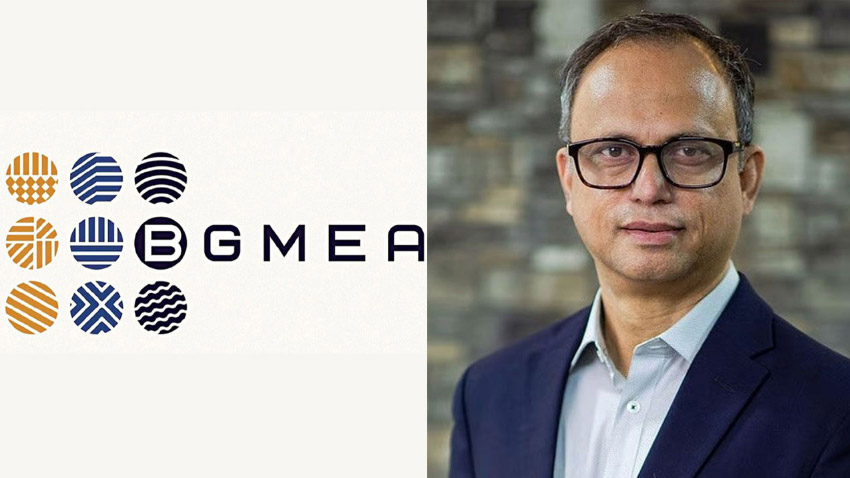Staff Correspondent
Published:2025-10-28 17:29:49 BdST
BGMEA urges govt to review labour ordinance, warns of industrial disruption
Bangladesh Garment Manufacturers and Exporters Association (BGMEA) President Mahmud Hasan Khan on Tuesday urged the government to review the recently approved Bangladesh Labour (Amendment) Ordinance 2025 as several of its provisions could destabilise the industrial sector and undermine Bangladesh’s export competitiveness ahead of its LDC graduation.
The country's manufacturing industries are already under ‘unprecedented pressure’ due to global economic challenges, rising domestic costs, and policy uncertainties, he said at an emergency press conference held at BGMEA’s Nurul Qader Auditorium in Dhaka.
Hasan Khan expressed deep concern over several provisions in the new labour amendment, particularly the decision to allow trade unions in factories with as few as 20 workers.
“This is an unrealistic and destabilising decision,” he said. “Such a low threshold will allow individuals unrelated to the industry to form unions, causing internal conflict and disruption in production.”
He noted that in India, at least 10% of workers or a minimum of 100 workers are required to form a union while in Pakistan, the threshold is 20%.
“Compared to these standards, Bangladesh’s provision is the weakest in South Asia. It will send a negative signal to foreign investors,” he added.
The BGMEA president also objected to the approval of both the ‘Bhobisshot Tohobi’l and ‘Progoti’ schemes simultaneously, allowing workers to participate in both.
“This will force employers to run two parallel financial systems,” Khan said, calling it a recipe for administrative disorder and higher costs.
He cited examples from India, Pakistan, Vietnam, and Sri Lanka — all of which operate under a single national pension or provident fund structure.
Turning to the recent 41% increase in Chattogram Port tariffs, the BGMEA president said the decision would further burden export-oriented industries already facing steep operational costs.
“Chattogram Port is not a loss-making entity; it consistently reports profits. As a public service provider, its goal should not be profit maximisation,” he said.
The BGMEA chief outlined multiple cost escalations facing the industry: 56% minimum wage increase effective from December 2024, 9% annual wage increment, higher gas and diesel prices, a 60% reduction in export incentives since 2023, and persistently high bank interest rates.
“These factors have already raised production costs significantly,” he said
“The issues we have raised — labour law reform, port tariff increases, and LDC transition — are not short-term concerns. They will shape our future generations’ economic reality,” he said.
“On behalf of all export-oriented industries, we urge the government to take prompt, positive, and effective measures that align with the real needs of industry, workers, and the national economy,” he added.
He urged the government to take a business-friendly and pragmatic approach to sustain competitiveness as Bangladesh moves toward LDC graduation.
He also called for urgent action to resolve gas shortages, simplify customs and NBR procedures, ensure efficient logistics and infrastructure, and expand access to affordable financing.
Unauthorized use or reproduction of The Finance Today content for commercial purposes is strictly prohibited.


